Scary stories to tell in the dark
Halloween is just around the corner, so after you put the finishing touches on your ghoulish Sarah Palin costume, cozy up with some of these spooky tales of demons, devils, and magic.
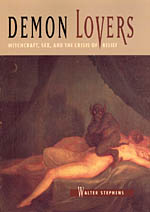 Walter Stephens, Demon Lovers: Witchcraft, Sex, and the Crisis of Belief
Walter Stephens, Demon Lovers: Witchcraft, Sex, and the Crisis of Belief
On September 20, 1587, Walpurga Hausmännin of Dillingen in southern Germany was burned at the stake as a witch. Although she had confessed to committing a long list of maleficia (deeds of harmful magic), including killing forty—one infants and two mothers in labor, her evil career allegedly began with just one heinous act—sex with a demon. Fornication with demons was a major theme of her trial record, which detailed an almost continuous orgy of sexual excess with her diabolical paramour Federlin “in many divers places . . . even in the street by night.”
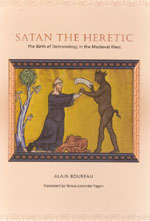 Alain Boureau, Satan the Heretic: The Birth of Demonology in the Medieval West
Alain Boureau, Satan the Heretic: The Birth of Demonology in the Medieval West
Boureau trains his skeptical eye on the birth of demonology and the sudden belief in the power of demons who inhabited Satan’s Court, setting out to understand not why people believed in demons, but why theologians—especially Pope John XXII—became so interested in the subject. Depicting this new demonology, Satan the Heretic considers the period between the mid-thirteenth and mid-fourteenth centuries when demons, in the eyes of Church authorities, suddenly burst forth, more real and more terrifying than ever before in the history of Christianity.

Armando Maggi, Satan’s Rhetoric: A Study of Renaissance Demonology
According to Christian theology, fallen angels share key similarities with human beings because they share our outcast condition. Cast to Earth and wandering in search of respite, their chief activity is their engagement and dialogue with humanity. With this probing new contribution to the study of Christianity, Armando Maggi examines this dialogue, exploring how evil spirits interacted with mankind during the early modern period. Reading innumerable treatises on demonology written during the Renaissance, including Thesaurus exorcismorum, the most important record of early modern exorcisms, Maggi finds repeated attempts to define the language exchanged between the fallen progeny of Adam, and the most notorious fallen angel of them all, Satan.
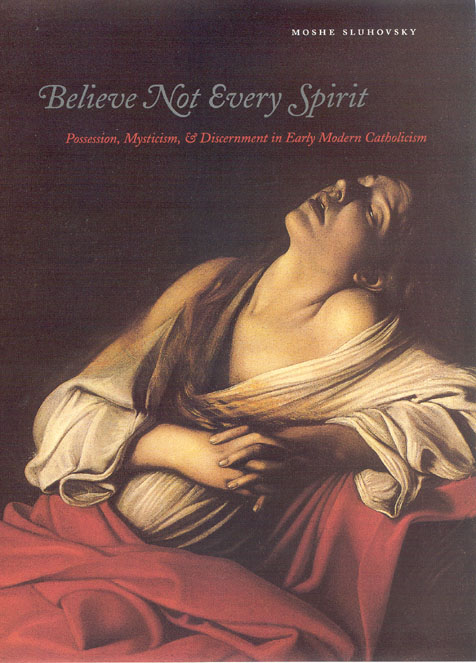
Moshe Sluhovsky, Believe Not Every Spirit: Possession, Mysticism, & Discernment in Early Modern Catholicism
From 1400 through 1700, the number of reports of demonic possessions among European women was extraordinarily high. During the same period, a new type of mysticism—popular with women—emerged that greatly affected the risk of possession and, as a result, the practice of exorcism. Many feared that in moments of rapture, women, who had surrendered their souls to divine love, were not experiencing the work of angels, but rather the ravages of demons in disguise.
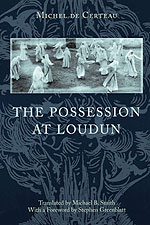
Michel de Certeau, The Possession at Loudun
It is August 18, 1634. Father Urbain Grandier, convicted of sorcery that led to the demonic possession of the Ursuline nuns of provincial Loudun in France, confesses his sins on the porch of the church of Saint-Pierre, then perishes in flames lit by his own exorcists. A dramatic tale that has inspired many artistic retellings, including a novel by Aldous Huxley and an incendiary film by Ken Russell, the story of the possession at Loudun here receives a compelling analysis from the renowned Jesuit historian Michel de Certeau.
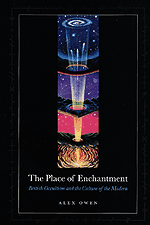
Alex Owen, The Place of Enchantment: British Occultism and the Culture of the Modern
By the end of the nineteenth century, Victorians were seeking rational explanations for the world in which they lived. The radical ideas of Charles Darwin had shaken traditional religious beliefs. Sigmund Freud was developing his innovative models of the conscious and unconscious mind. And anthropologist James George Frazer was subjecting magic, myth, and ritual to systematic inquiry. Why, then, in this quintessentially modern moment, did late-Victorian and Edwardian men and women become absorbed by metaphysical quests, heterodox spiritual encounters, and occult experimentation? In answering this question for the first time, The Place of Enchantment breaks new ground in its consideration of the role of occultism in British culture prior to World War I. Rescuing occultism from its status as an “irrational indulgence” and situating it at the center of British intellectual life, Owen argues that an involvement with the occult was a leitmotif of the intellectual avant-garde. Read an excerpt: Aleister Crowley in the Desert
Happy Halloween!